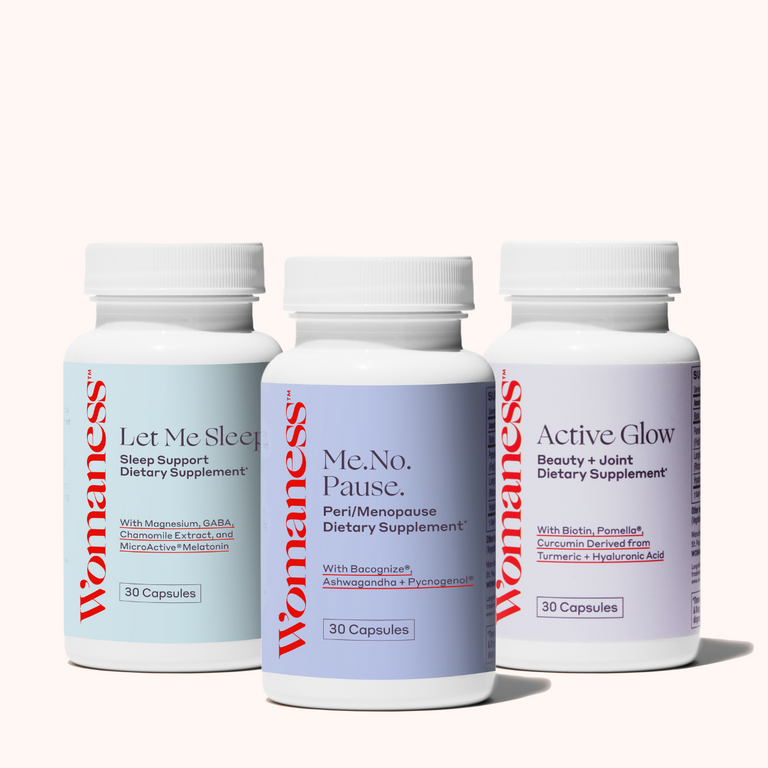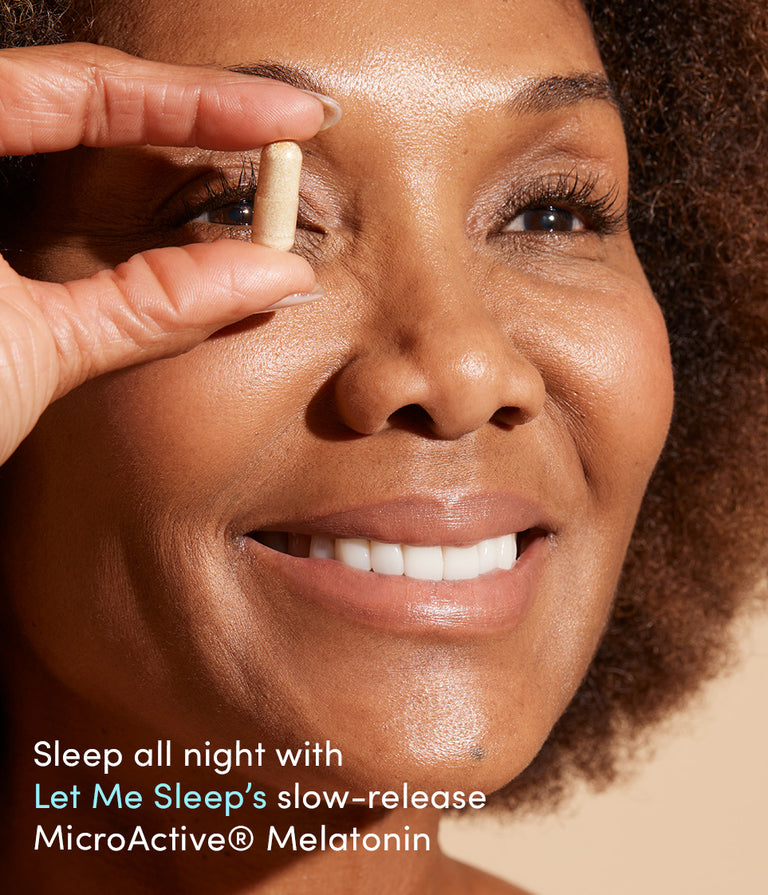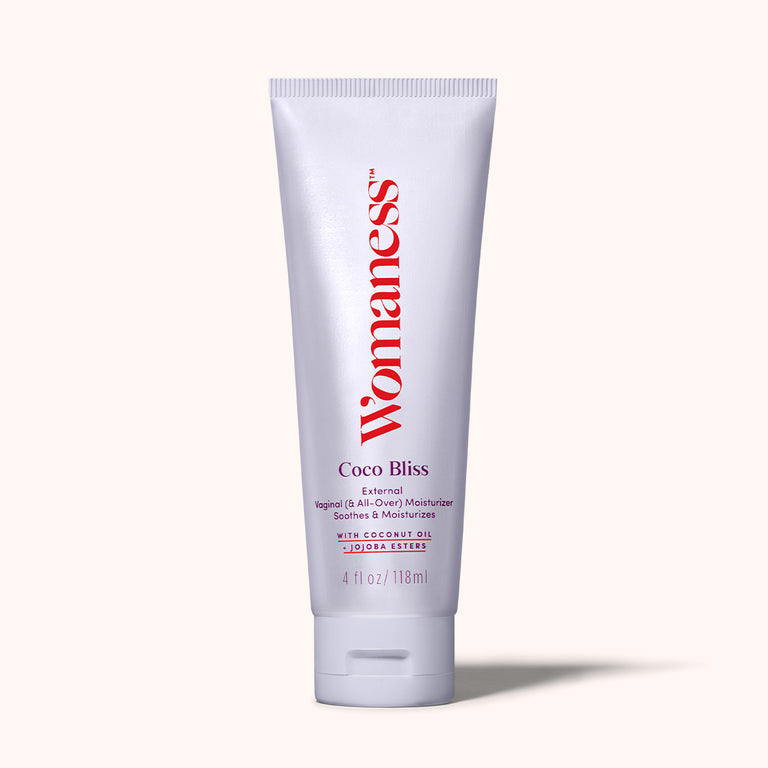By Sally Mueller, as told to Jessica Migala
 My symptoms first started in my early 40s.
My symptoms first started in my early 40s.
My periods went from predictable to erratic. The flow was so strong and heavy, I developed iron-deficiency anemia because of the blood loss.
At times, I felt as if I was hemorrhaging.
I didn’t know it then, but it was the start of my journey into perimenopause, the period of time before menopause that can begin in your thirties and forties when estrogen goes on a rollercoaster ride. This stage lasts until your ovaries stop making estrogen and your periods disappear. The average age of menopause is 51, and so women exist in perimenopause—and all of its symptoms—for four to eight years on average, according to the North American Menopause Society.
For me, I went through perimenopause in about three years. At age 57, I’ve been postmenopausal for about nine years and I’m still going through changes.
It’s shocking to me now that I didn’t connect my symptoms and body changes with menopause. But that’s exactly what happened.
Moms didn’t talk to their daughters about menopause—at least in my generation. But Millennials and Gen Z are demanding that these conversations be had. That’s why I openly talked about my experience with my 21-year-old daughter.
I learned there are dozens of menopause symptoms.
Hot flashes are such an infamous symptom—and 75 percent of women go through them—but I’m in the quarter who did not. Without hot flashes, I figured my symptoms couldn’t be menopause, right?
My skin also became dry almost overnight. It was such a dramatic shift. On the one hand, I was thrilled that I was no longer breaking out (finally!), but on the other, I wasn’t prepared with new products. Suddenly, I had to chuck all my old ones and go for a heavy-duty moisturizer, something I would have never even thought about using before.
Then, there’s the vaginal dryness. I didn’t know for a while why I was no longer enjoying sex and it had become painful. It’s almost funny that my gynecologist told me it was because I had a tilted uterus, which can cause painful intercourse. Sure, maybe that was true, but that was not my issue. It wasn't until I saw a female doctor at the Women's Health Center at the Mayo Clinic that I realized the issue was more likely due to vaginal dryness caused by the loss of estrogen during perimenopause.
My sleeping problems could also easily have been chalked up to stress or travel for work. But these were also menopause-related.
It's both frustrating and total normal not to know you're in perimenopause when it’s happening, says Mary Jane Minkin, MD, clinical professor in the department of obstetrics, gynecology, and reproductive sciences at the Yale University School of Medicine. That’s because many symptoms can be linked to other causes, such as depression, anxiety, thyroid dysfunction, or stress.
Many women only realize the cause once their periods have stopped. “Let’s say three or four years after you start experiencing symptoms, you stop getting your period, you can say ‘aha, that stuff for the last four years has been perimenopause.’ It’s tough to figure out much of the time,” she says.
One common clue is irregular menstrual periods, says Minkin. “We stop ovulating well, and we make less progesterone, which is actually the master hormone of getting regular periods,” she says. This can cause lighter, heavier, or irregular periods. Still, symptoms can exist even if your periods aren’t a pain.
We know that every person who goes through menopause has a unique experience. Had I known what I might expect, though, I at least would have been mentally prepared for the changes ahead.
If I had known what was happening to my body, I also would have also better prepared to take care of my future health.
There’s a history of osteoporosis in my family. Estrogen protects against bone loss and the drop in the hormone during menopause leaves your skeleton vulnerable to conditions like osteopenia and osteoporosis. I wish I would have known to prepare myself by focusing on skeleton-strengthening habits in my forties, such as making weight-bearing exercise part of my routine and focusing on eating calcium and vitamin D-rich foods.
I’m not telling you all of this info about me to worry you. In fact, menopause doesn’t have to be scary if you become educated about it and prepared. That's why I started my company, Womaness, which maintains a blog, The 'Ness, that provides information and stories from women about what lies ahead.
I also encourage women to get a good doctor lined up who understands menopause and will listen to your concerns.
To find your perfect meno match, pop in your zip code to the Find a Menopause Practitioner tool at menopause.org, the website of The North American Menopause Society, Dr. Minkin suggests.
“The society will suggest providers who know about menopause and like taking care of menopausal women,” she says. In other words: Armed with info and a good doc, you’ll be ready.
From Women's Health, originally published April 6, 2022
More For You
Our Top Menopause Resources
The Truth About Menopause's Biggest Myths
3 Most Common Questions Doctors Get About Menopause






